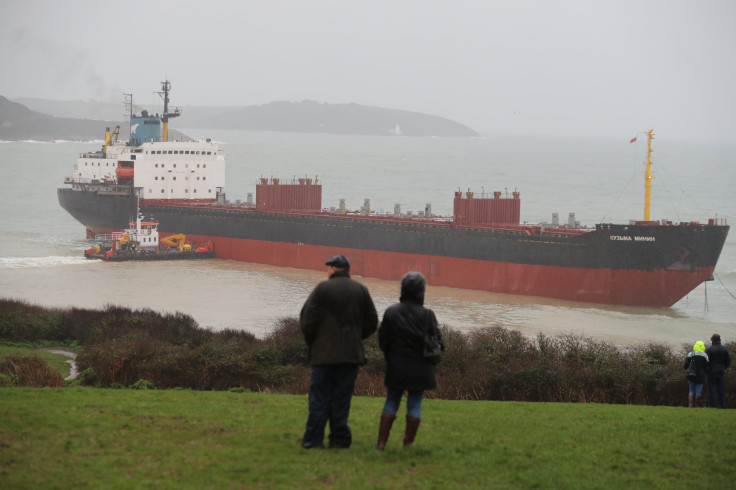Drunk Russian Captain Crashes Cargo Ship Into Bridge In South Korea [Video]

A Russian cargo ship, manned by a drunk captain, went off course Thursday and crashed into a busy South Korean bridge, located off the southeast coast of the nation.
A video of the incident showed the ship steadily speeding toward the bridge till it made contact and gradually came to a halt. Although motorists were seen stopping their vehicles for a few seconds at the sight of the ship closing in near the bridge, movement of the traffic resumed soon after.
There were no reported casualties due to the incident, although the ship damaged the lower part of the bi-level bridge. As a result, portions of the lower bridge were closed off as a precautionary measure and would remain closed through Sunday.
The ship in question was a 5,998-ton Seagrand which collided with the side of the Gwangan Bridge, located in Busan, around 4:20 p.m. local time (2:20 a.m. EST, Friday). Minutes before the crash, Seagrand had also hit a cruise ship moored at the port.
After crashing into the bridge, the ship turned around and sailed off in the opposite direction. The ship was ordered to go back to the port and at 8:20 p.m. was held there surrounded by four patrol ships, the Korea Coast Guard (KCG) told Yonhap News reported.
When the KCG questioned the crew aboard the ship, it was revealed the ship's captain, whose identity was withheld, was under the influence of alcohol. The captain, who had a blood alcohol content of 0.086 percent – above the legal limit of 0.03 percent – was charged and his license was revoked. Two other members of the cargo ship did not consume any alcohol.
Drinking alcohol at the time of sailing is not punishable by law in South Korea as long as the one under the influence was not steering the vessel. Although it was not determined whether the captain was at the helm of Seagrand at the time of the crash, KCG said they would press charges against the individual because he was responsible for the ship.
South Korean authorities were also trying to determine why the ship changed course and was headed toward the bridge when its original course was in the opposite direction, to Vladivostok, Russia. It was carrying 1,415 tons of steel coils at the time of the collision, after unloading 1,495 tons of iron pipes in Busan on Wednesday.
In November, footage emerged of a Russian ship bumping into a Ukrainian tug boat near the Kerch Strait, which separates the Crimean peninsula from the Russian mainland in the Black Sea – an incident that sparked concerns of an escalation of hostilities between the two nations. Following the incident, the Russian coast guard opened fired, wounding six Ukrainian crew onboard and seizing the tug and two other gunboats. It claimed that the vessels had made an unauthorized passage through its waters, Independent reported.
© Copyright IBTimes 2025. All rights reserved.






















